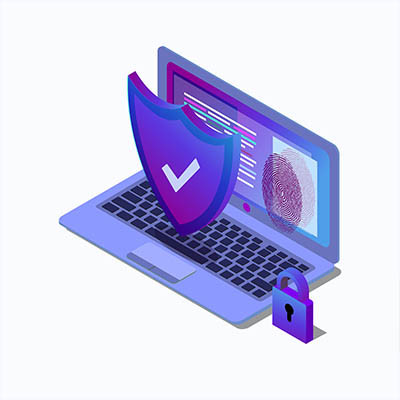For technology professionals, working with small businesses (SMBs) is often a balance of high-stakes problem-solving and strategic frustration. While technology has become more accessible, the gap between having the tools and using them correctly remains a primary point of contention. Let’s go through four considerations the IT pros are pressing as they enter 2026.
PCSOFT Blog
“Persuasion.” “Percussive Maintenance.” Whatever you call hitting your computer to make it work, we get it. We’ve all been there. Your Wi-Fi router drops the signal for the third time during a meeting, or your TV remote decides to go on strike. In a fit of frustration, you give it a firm slap; and miraculously, it starts working again.
As an IT professional, I'm used to dealing with change. It's the nature of the job. What we're experiencing now isn't just change, it's an exponential acceleration of innovation. The rate at which new technologies are emerging, maturing, and disrupting entire industries is faster than ever before. This velocity shift isn't a random event, it’s driven by three key factors coming together in perfect harmony. This month, we will take a look at them.
Technology is a double-edged sword: it supercharges business efficiency but also equips organizations like law enforcement with unprecedented power. Setting aside the immediate ethical debate, it is crucial to understand the sophisticated technologies certain agencies are leveraging in their operations; specifically, the advanced AI and data-mining platforms, such as those created by Palantir.
Manufacturing equipment costs a pretty penny, so you naturally expect it to drive profits and yield a return on investment. Yet, how often do these machines break down and cost you more than they should? By the time the red light turns on that tells you something’s wrong, you’ve already wasted precious time that you could have been saving with proactive, preventative maintenance.
So, one of your devices—let’s say it’s a computer monitor—finally gives up the ghost and dies on you. What do you do?
Too many people would answer this question by simply tossing the offending monitor into the trash, even though that would be precisely the wrong move. Let’s go over how to properly dispose of your old technology and review the many reasons it is essential to do so.
Your business lives and dies by its budget, and its IT budget is no different. If you can get your IT budget under control, you can enjoy greater peace of mind and reassurance that your operations are as smooth as possible. Today, we want to look at three of the greatest factors that can contribute to an efficient IT budget: the IT roadmap, minimized downtime, and outsourcing IT. Let’s get to it.
Whether employees like it or not, they bear some sort of responsibility for the technology they use in the office. It’s your job as the business owner to ensure that they get the help they need to both make effective use of the technology and to do so in a way that keeps the business safe. Today, we want to look at three of the ways hiring a managed service provider can help you offer better and more consistent IT assistance for your employees.
When the time comes that you have to make a big decision—one that could have some significant impact on your business, for instance—what does your thought process look like? Do you rely on data, or do you rely on what your gut tells you?
If it’s the latter, you’re literally relying on your least accurate information and hoping that you get the most beneficial outcome. Instead, why not rely on the other, quantitative and confirmed data your business has collected over the years and pair it with the analytical prowess of AI tools?
The more money you throw at something, the more you hope that it will eventually deliver on the investment… but if you’re not getting the results you hoped for, you might be falling into the sunk cost fallacy. You might find yourself making illogical decisions based on the investments you’ve already made, and that doesn’t help anyone—in life or in business. Today, we want to discuss how you can free yourself from the sunk cost fallacy to make better decisions for your business’ IT solutions.
Depending on the sector your business falls into, you’ll want to implement technology solutions designed to help you be successful in the context of that sector. Part of that means investing in new solutions that can yield a satisfactory return on investment, or ROI. But how do you know if a solution can yield a good ROI, and most important of all, what kind of math goes into ensuring you’re not overspending on IT that doesn’t produce results?
AI is all over business and offers immense potential, but like any other technology, its misuse (including over-reliance) can lead to serious problems. To prevent AI from hurting your business, you need to understand the key pitfalls and thoroughly manage governance. Think of AI as a powerful, specialized tool that requires careful handling.
Some of the most versatile and useful technology out there might already be installed on your infrastructure. One such tool is Microsoft Excel, Microsoft 365’s spreadsheet building platform. You might be surprised to find out that Excel can be used in some interesting ways—including these three uses.
While many people have heard the saying work smarter, not harder, this approach only works if employees are engaged with the tools you’ve chosen to outfit your business with. Even though new gadgets and software are exciting for most workers, the true benefits come when these investments directly boost productivity, helping businesses succeed.
The day-to-day work of running a business can feel overwhelming. With overflowing inboxes, endless to-do lists, and scattered information, it's easy to get lost in the details. With the right tools, however, you can turn those tedious tasks into streamlined workflows, giving you and your team more time and clarity. This month, let's explore some of the technology that can help take the stress out of your daily grind.
Business technology is one of the greatest expenses in your budget, particularly when things don’t go according to plan. These are typically looked at as capital expenses, which means they are expensive and unpredictable by nature… but they don’t have to be. Today, we want to show you a different way of managing your IT that transforms it into a predictable operating expense.
How often do you find yourself overwhelmed by the sheer amount of clutter on your desktop? You might dig through a pile of applications, windows, files, and so much more, and it can be difficult to make sense of it all and be productive. Thankfully, there is a rather simple tool to help you clean up your desktop and focus on one window at a time.
It is certainly tempting to squeeze every last drop of life out of existing equipment. After all, why spend money on new computers or servers if the old ones still technically work? You may view this as frugal, but ironically not spending on the updated IT your business needs can lead to leaving significant revenue on the table. The truth is, holding onto outdated hardware can silently, yet significantly, bleed your business dry.





















